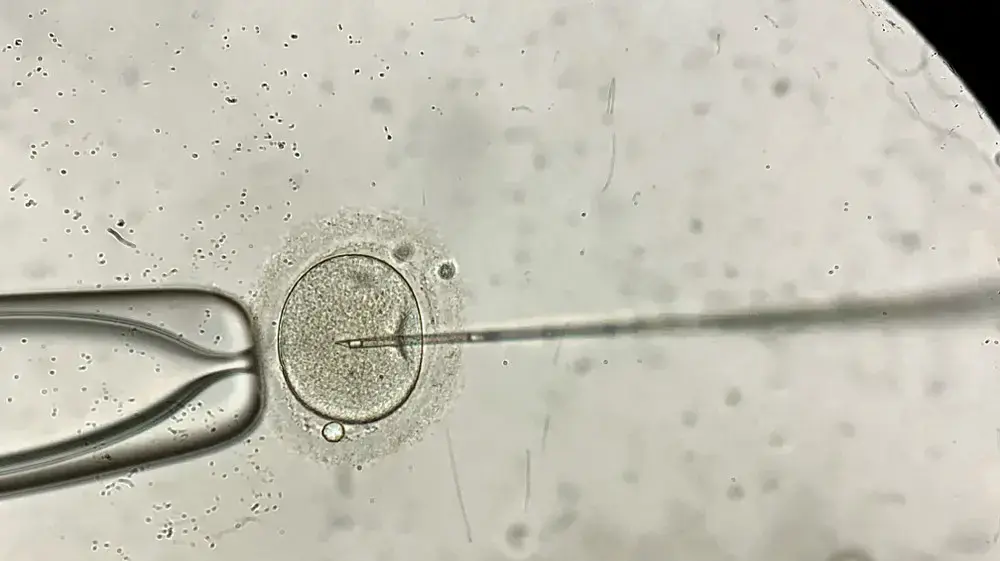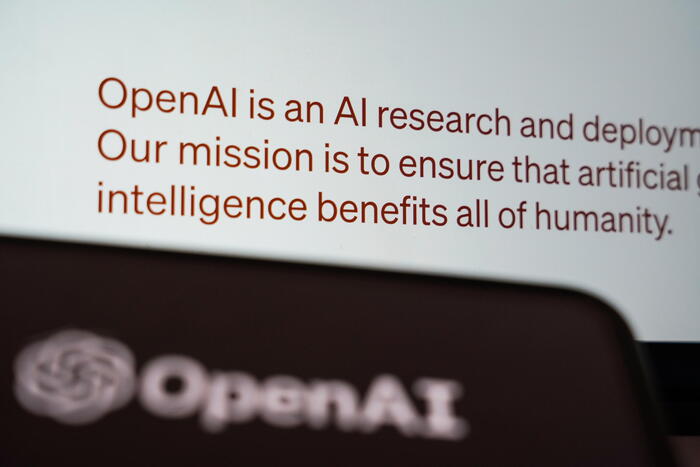We are going through a dizzying moment of change. Artificial intelligence (AI) has long since left the specter of science fiction. The development of this digital technology, which is here to stay, also impacted medicine. And the field of reproductive health and fertility is one that begins to incorporate new tools.
AI makes it possible to establish relationships between a large amount of biomedical data thanks to the use of complex algorithms. This makes it possible to improve the accuracy of medical guidelines, increase knowledge in certain areas, reduce diagnostic errors and make predictions in real time.
Thus, in reproductive medicine, and punctually the field of fertility, acquires increasing prominence, both in the clinical field and in the laboratory for highly complex treatments.
How can AI help assisted reproduction? In some centers such as In Vitro Buenos Aires, Halitus and Cegyr it is already being implemented to help decide on the most appropriate work protocols (for example, those related to controlled ovarian stimulation), offer more reliable diagnoses based on the analysis of a large volume of data (Big Data) or to improve embryo selection criteria to increase the probability of implantation and evolutionary gestation.
Agustín Pasqualini is medical director of Halitus and vice president of the Argentine Society of Reproductive Medicine (SAMeR). In dialogue with Clarín, he explains: "By obtaining an image of each of the eggs, AI allows us to analyze them morphologically and classify them according to their quality. For this, different algorithms are used that help us decide the morphology of the oocyte."
Sperm selection by artificial intelligence
Why is it novel and important? "Because it not only helps us in the process (evaluates many data at once) but also analyzes aspects that are not seen to the human eye, even under the microscope," says Pasqualini.
The use of AI in fertility centers
"For 5 months, we have incorporated AI technology in the field of assisted reproduction. It can be performed on any woman who is going to undergo egg freezing or in vitro fertilization treatment," says Marisa Geller, gynecologist specializing in reproductive medicine and medical director of In vitro Buenos Aires.
And he elaborates: "We photograph the eggs at the time of extracting them and through software that uses artificial intelligence we determine what possibilities they have of becoming a blastocyst (fifth day embryo, the last stage that can be outside the uterus before being transferred) and a newborn at home. It has no adverse effects and is not invasive. The technique has about 80% correlation and costs about $300."
Under the microscope. Artificial intelligence allows us to have a precision that the human eye does not reach.
"The woman freezes her eggs to stop the passage of time. In this way, at the time of thawing they maintain the biological age they had at the time of freezing. The uterus does not age so the embryo can be transferred without problem. However, we do not transfer embryos beyond the age of 50. It's our limit," Geller says.
Silvia Ciarmaroti, head of the Reproductive Medicine section at the Italian Hospital of San Justo, said: "We are developing a protocol for embryo selection in the laboratory using the AI strategy. For now, the programs do not exceed the selection made by the embryologist, but it can be complementary and contribute to the best embryo selection at the time of transfer."
Embryos are classified, and artificial intelligence is also used for this.
AI is also expected to help in the moments before treatments, both in the evaluation of the infertile couple and in the decision of which medication is appropriate to use for ovarian stimulation.
Other advantages of AI in fertility
"When we perform fertility treatment, we stimulate the woman to obtain eggs through a follicular puncture. That same day, the man leaves the semen sample to use the sperm. Once we have the egg and sperm in the lab, we do intracytoplasmic sperm injection (ICSI). The embryos then remain in the incubator for five days," explains Pasqualini.
Today, there are incubators, called Time Lapse, which have video cameras and film embryonic development. "This allows us to observe events that occur in the embryo. In addition, they have software programmed to look at different events at the level of embryo division and through artificial intelligence can tell us which is the embryo with better implantation potential than another", distinguishes the specialist.
The Time Laps incubator used in Halitus and that with AI measures the implantation potential of embryos.
Another benefit offered by these softwares is that, unlike a manual activity, they do not get tired and always do what they are trained for, no matter how many times they have done it previously.
"The problem is that today there are more than 200 algorithm software and there is still a lack of clinical validation of which one really works. Therefore, you always have to analyze this technology and apply it in each laboratory to evaluate the results," warns Pasqualini.
ACE
See also




/cloudfront-eu-central-1.images.arcpublishing.com/prisa/AR4TPPVGS5HKNAVGMCEWHZZT64.jpg)








